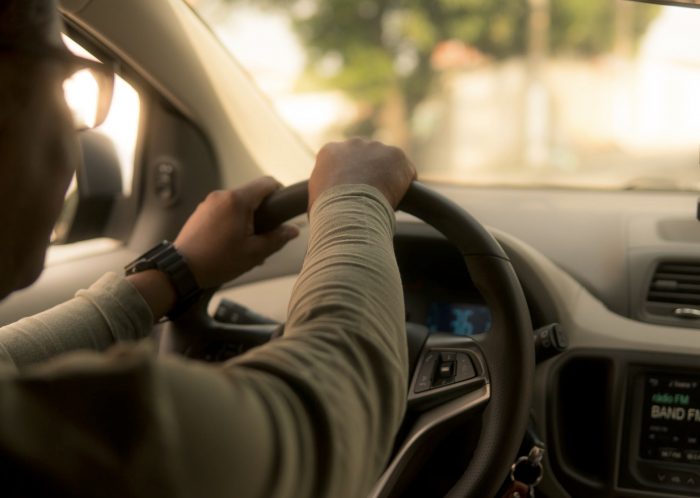I was driving rideshare on a typical winter Friday night in a decent-sized New England city.
This was a couple of months before the pandemic took hold. The night had been going how Friday nights usually went, seamlessly moving between passengers with no downtime—the way I liked it.
About 2:30 a.m., I picked up a passenger, maybe a few years younger than me, bringing him home from a buddy’s house.
We were just chatting about usual small talk things, yet I can’t quite recall exactly what. Sports, weather, it could have been anything, but ultimately that ended up being irrelevant.
He asked me if we could stop at a convenience store for cigarettes, easy enough. This happens fairly often, and I don’t mind. He runs in, buys smokes, and returns to my car. Then he drops this bomb in the middle of things:
“Thanks, man. Besides, you probably just have some ___ for your next ride, that f*cker can sit and wait.”
He didn’t say the N-word, but the racial slur he dropped was in the same neighborhood. I was simultaneously shocked and angered by his brazen, racist attitude. I felt my adrenaline skyrocket.
What came out of my mouth was simply, “What?!”
Not as in, “What? I was unable to hear you.” More like, “What the actual f*ck did you just say?”
My blood was boiling, and I debated my options. Should I kick him out of the car? Yell at him? I know that I can’t ignore it. I have to do something.
His matter-of-fact reply, “Hey, what can I say, man? I’m racist. It is what it is.”
Considering my emotions at the moment, the impulse that followed felt somewhat puzzling to me. I took a deep breath; then I heard a quiet, surprisingly non-angry inner voice. It whispered, “No, go with this instead.” I took another breath and agreed to follow this advice.
I calmly asked the question the little voice in my head requested, “What happened in your life that led you to become a racist? I understand it’s something that’s learned, and I want to know. I’m curious.”
Listening to the question coming out of my mouth, that instinct made much more sense.
I could understand the merit of choosing this direction. Life experience has taught me that if you argue, scream, or talk down to someone, they’re usually going to double down in self-defense.
They’re certainly never going to respond with, “Yup, you got me, my bad.” However, if you ask why or how someone came to believe a thing, they’ll almost always tell you. People like to tell their stories when they’re given an opening to do so. I was about to learn—this man included.
He described when, he was jumped and beaten up badly by a group of Black youths as a teenager. How he spent weeks in a hospital, including some time in a coma.
Followed by the long, grueling rehabilitation in order to work again. I can’t lie; it was tough to hear. I empathized, “What a horrific experience, thank goodness you were able to recover. It looks like you’ve put in a lot of hard work to do that. The guys who put you through that sound like a bunch of assholes, huh?” He responded with a simple “Yeah.”
“I know some assholes who look just like us. I’m guessing you do as well.” He nodded in agreement.
“If that’s true, then couldn’t it also be true that there were plenty of Black people who are just like us? Folks who are doing the best they can day in and day out, trying to do the right thing? Working themselves like crazy to make things better for themselves and their families?”
I could feel the wheels starting to spin in his mind as he replied, “Yeah, that makes sense. I know a couple of guys I work with, and they’re pretty cool. They work hard, and they are good dudes.”
I kept building up the connection, “Absolutely, I have no doubts. Is it possible it has to do with simply the kind of people that they grew into? If so, is it also possible that the color of their skin doesn’t make a difference one way or the other what kind of people they become? Let’s bring it all back to what happened to you because that’s how we got here. Could it be realistic that your attack had everything to do with the lack of character of those kids that jumped you instead of what they looked like?”
I could feel the shift in his energy in a major way by this point. In a subdued tone, he muttered, “Damn. I really need to rethink all of this. I think I got this all wrong.”
The last minute or so of the ride was pensive silence until I got to his house. Then he asked a question, “Back at the store when I said that, I felt at first like you were going to kick me out of the car. Then you didn’t. What happened back there?”
I guess he picked up on my emotional shifts after all. I was truthful with him.
I explained, “I thought about it. Then I decided I would rather understand why you felt the way you did. I became curious instead of angry. I appreciate that you were willing to go there with me.”
On the way out, he responded, “I’m glad you did too. I think everything just changed. Thank you.”
I have pondered this exchange often—with the events over the course of the last year, starting with George Floyd’s murder. Continuing with all that continues to unfold since that day. There is a lot of rightful outrage and fear.
What worries me is how things continue to escalate with the current “divide and attack” mentality. I can’t see how any meaningful healing can be achieved with the dialogue staying in that mindset.
At the end of the day, isn’t that what we want? Solutions where everyone feels whole, safe, equal, and fully valued?
Is it possible that the key to achieving these goals depends on our willingness to have these kinds of uncomfortable conversations with each other?
What if it can work? Does that make the discomfort worth it? I believe so. That’s why I felt pulled to share this conversation.
If more and more of us embrace this path, we can heal and solve this together. If this could happen in one conversation of less than 15 minutes, what else can?
~
 Share on bsky
Share on bsky






Read 26 comments and reply